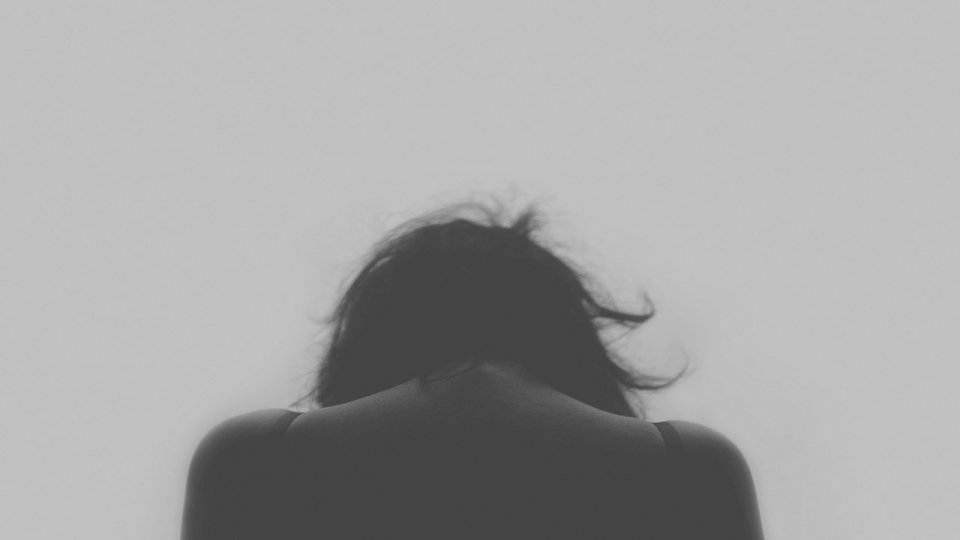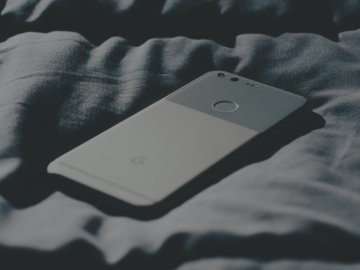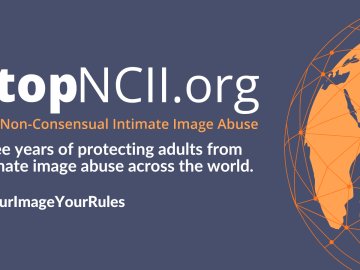Intimate image abuse is often misnamed as ‘revenge porn’ in the media.
Whatever name you give it, this is what happens when intimate images you have taken and shared consensually are then shared elsewhere without your consent.
It’s illegal, unfair, and cruel.
It’s also something that you can recover from and claim a sense of closure and justice from.
If somebody shares your intimate images without your consent, you may not know what to do. We’ve got five steps you can take to take control of the situation and find the support you deserve.
Don’t panic
Discovering that your intimate images have been shared online is a horrifying and traumatic experience.
Whatever your reaction, it’s fair and justified. You may be furious, distraught, anxious, despondent, numb, amused, and anything else. That includes feeling panicked.
Just don’t believe it’s the end of the world.
There are support services out there and this moment will not define your life, even if it feels like it will.
In amongst feeling all those horrible, confusing, justified things, there are a few steps you can take straight away to regain control of your images and privacy…
Record the evidence
Gather your evidence using screenshots, recordings, and notes.
- Anything that identifies the perpetrator and their intent to commit the crime (more on that later) – this could be in the form of threatening messages, voice notes, or posts on social media
- Evidence that the images are online. You may not want to look at the images in this light, but if you can capture evidence that they were posted online, you have proof that the crime occurred.
- Copy any URLs to the content. Get all the details, e.g. not just examplewebsite.com but examplewebsite.com/images/yourpictures/1
Report the crime
“Disclosing private sexual photographs and films with intent to cause distress” has been a statutory offence since April 2015, when it was added to the Criminal Courts and Justice Act.
As such, you can report what’s happened to the police.
Victims of intimate image abuse report different responses from their respective police forces. Some find a great deal of support and understanding, whilst others can feel underwhelmed or confused by the response they receive.
We would encourage you to contact the police if you feel comfortable doing so, if only to help form a more accurate picture of the scale of the problem.
There is no pressure or expectation on you to do so, though, and the priority in this situation should be to protect your wellbeing.
It’s also important to note that, if you are under 18, a more serious crime has been committed and we recommend speaking the police and a trusted adult. We’ve written about sexting and indecent images of children before if you want to learn more about the legal implications. The key takeaway, however, is that you will not get in trouble – the police take a common sense approach to self-generated indecent images of children.
Get the help you deserve
Whether you choose to report the crime to the police or not, or if you want advice on how to do so, your next port of call should be the Revenge Porn Helpline – the UK’s only dedicated helpline for adult victims of intimate image abuse.
We can explain your legal rights, signpost you to further support services, and help you with reporting and removing images from the internet.
We offer a telephone and email service to ensure you can receive support in a way that is most comfortable and accessible for you.
You deserve access to help, support, and guidance in this distressing time. The Revenge Porn Helpline is there to help you with the immediate impact of intimate image abuse but cannot offer ongoing support due to funding and staffing constraints.
Find ongoing support
As a result, we recommend finding appropriate long-term support to help you manage the impact of being victim to this crime.
There are generalist helplines for mental health support and more specialist helplines for specific sub-groups of people and situations.
There is an extensive list of helplines and support services on the Revenge Porn Helpline website.
It’s also a good idea to reach out to a trusted friend or family member. You may find it difficult to start that conversation but, if they truly care about you, they will support you and understand.
🎉 BONUS TIP 🎉
Do not blame yourself
There is nothing wrong with taking and sending intimate images (if you are over 18).
Doing so is within your rights and, provided it’s not done under coercion or manipulation, can be part of healthy and happy relationships of all kinds.
Breaking someone’s trust and sharing their images without consent is a crime.
People who believe it is okay or take pleasure in doing this are to blame.
You are not.






